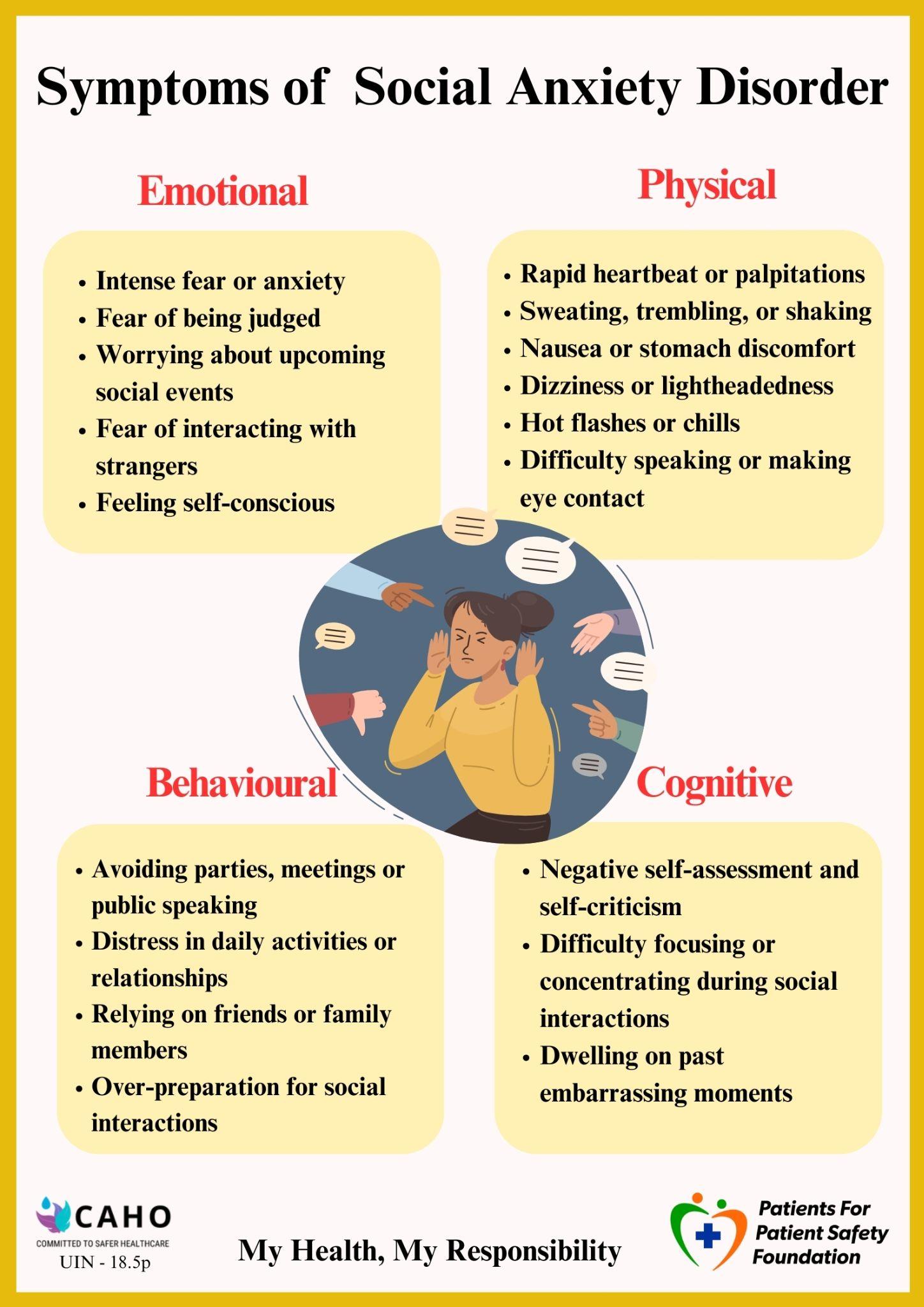
Social Anxiety Disorder (SAD), also known as Social Phobia, is a mental health condition characterised by an intense and persistent fear of being negatively judged, criticised or rejected in social situations. Unlike common nervousness in formal settings, Social Anxiety Disorder affects everyday situations like eating in public or meeting people. This fear of embarrassment leads to avoidance of social interactions, potentially impacting personal relationships, causing loneliness, hindering success in school or work, and increasing the risk of depression and substance abuse.
The symptoms and signs of Social Anxiety Disorder can vary from individual to individual:

Manifestation in children: Crying, tantrums, freezing and clinging to parents or caregivers. Shyness, avoiding social interactions and not speaking in social situations.
To diagnose social anxiety, doctors may use detailed clinical evaluation, a thorough assessment of the individual's symptoms, medical history and family history, and a review of situations that trigger social anxiety.
Treatment options for Social Anxiety Disorder typically include a combination of psychotherapy, medication, and lifestyle changes. Do not self-medicate or miss and adjust doses independently. Always seek professional guidance and treatments from Mental Health Professionals.
If you or someone you know is struggling with social anxiety, consider reaching out to a Mental Health Professional for guidance and support. In India, you can contact the mental health helpline Tele MANAS at 14416 OR 1-800 891 4416 available every day of the week and offering support in multiple languages.